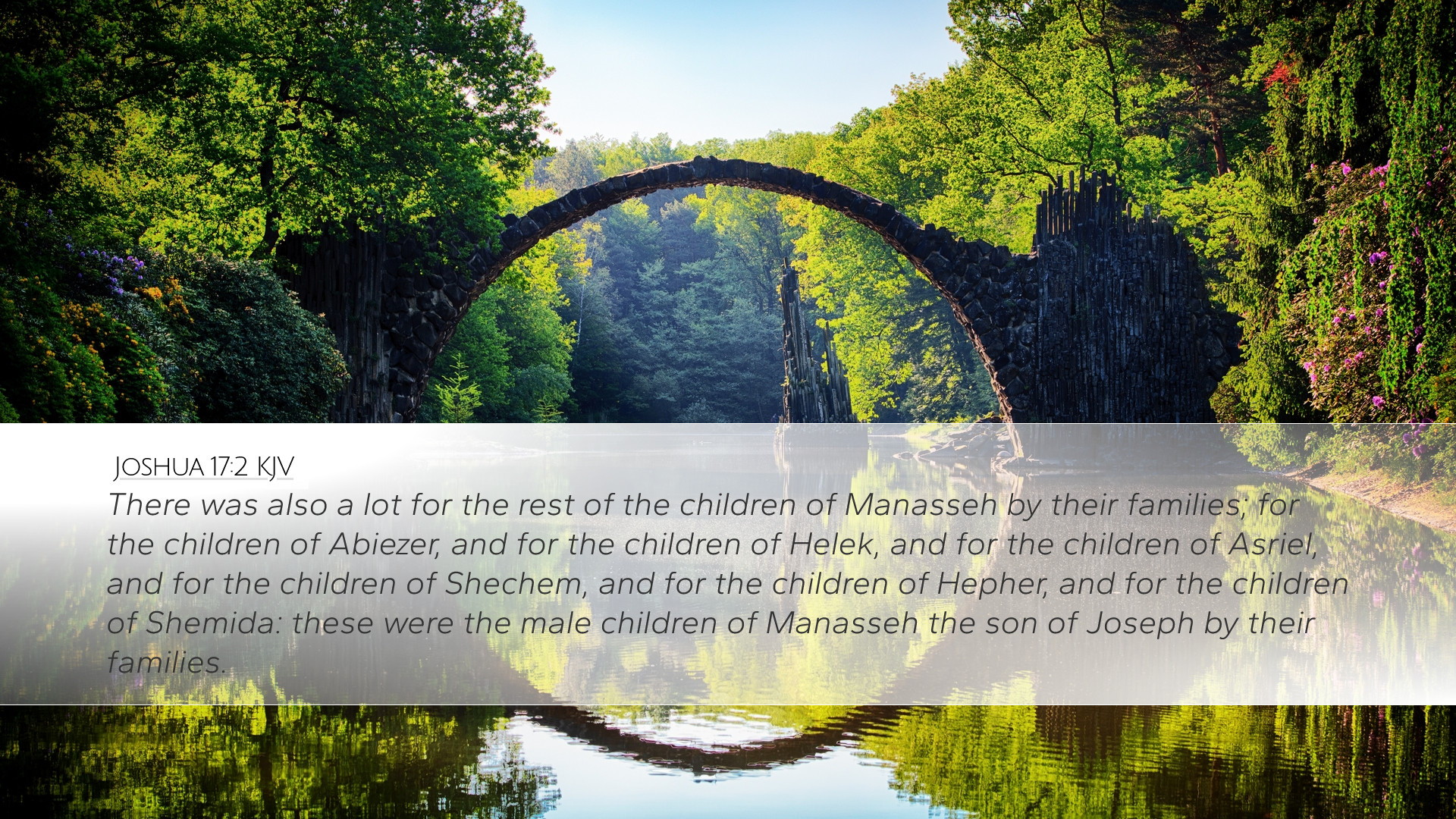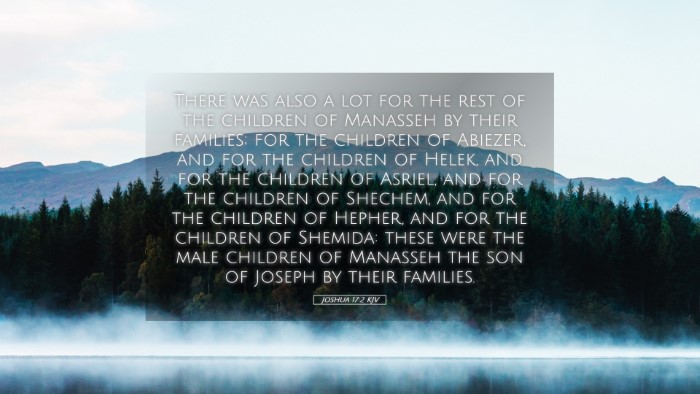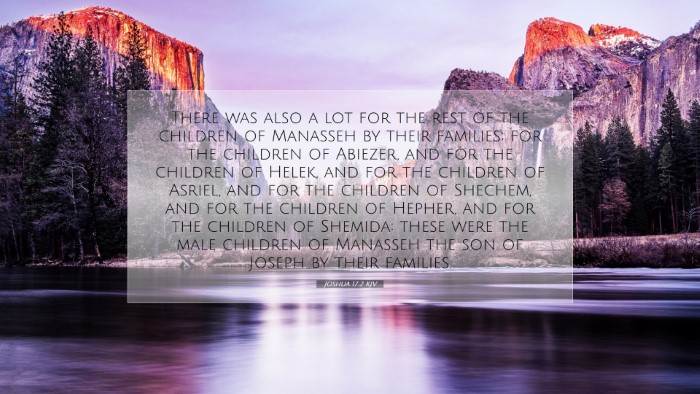Old Testament
Genesis Exodus Leviticus Numbers Deuteronomy Joshua Judges Ruth 1 Samuel 2 Samuel 1 Kings 2 Kings 1 Chronicles 2 Chronicles Ezra Nehemiah Esther Job Psalms Proverbs Ecclesiastes Song of Solomon Isaiah Jeremiah Lamentations Ezekiel Daniel Hosea Joel Amos Obadiah Jonah Micah Nahum Habakkuk Zephaniah Haggai Zechariah MalachiJoshua 17:2
Joshua 17:2 KJV
There was also a lot for the rest of the children of Manasseh by their families; for the children of Abiezer, and for the children of Helek, and for the children of Asriel, and for the children of Shechem, and for the children of Hepher, and for the children of Shemida: these were the male children of Manasseh the son of Joseph by their families.
Joshua 17:2 Bible Commentary
Commentary on Joshua 17:2
Joshua 17:2 states: “There was also a lot for the rest of the children of Manasseh by their families; for the children of Abiezer, and for the children of Helek, and for the children of Asriel, and for the children of Shechem, and for the children of Hepher, and for the children of Micah: these were the male children of Manasseh the son of Joseph by their families.”
Contextual Overview
The passage is within the larger context of the allotment of land to the tribes of Israel after their conquest of Canaan. This moment is significant, as it marks the transition of the Israelites from wanderers to settlers in the promised land.
The Manasseh Tribe
The tribe of Manasseh, one of Joseph’s sons, is divided into two half-tribes—one settling in Gilead (the east side of the Jordan River) and the other inheriting land west of the Jordan. This division illustrates the complexity of land inheritance and tribal relationships among the Israelites.
Insights from Public Domain Commentaries
-
Matthew Henry:
Henry emphasizes the orderly method of land distribution among the Israelites. He points out that each family received its portion without confusion, indicative of God's providence in fulfilling His promises. The mention of specific families underscores the significance of heritage and divine inheritance.
-
Albert Barnes:
Barnes highlights the diversity within the tribe of Manasseh, noting the names listed represent different families and clans. This illustrates that God is aware of the individual as well as the collective. Each name represents historical significance and identity within the community.
-
Adam Clarke:
Clarke discusses the inclusion of the children of Manasseh and how it reflects God's commitment to fulfill His covenant with Jacob. He notes the importance of the genealogical records in Scripture and how they affirm the continuity of God's promises through generations.
Theological Reflections
This passage offers several theological reflections for further contemplation.
-
The Faithfulness of God:
The land allotments serve as a reminder of God's faithfulness to His people. Each inheritance is not only a physical territory but a testament to God’s fulfillment of His long-standing promises.
-
The Significance of Community:
The listing of specific families illustrates the importance of community and identity in Israelite culture. The church today can draw parallels in fostering community among its members while embracing individual identities.
-
The Role of Heritage:
The emphasis on families highlights the significance of heritage and legacy. This serves as a reminder for modern believers to pass down faith and values to future generations.
Practical Applications
For pastors and theologians, Joshua 17:2 instills several practical applications that can be drawn for spiritual growth:
-
Encouragement in Promises:
Encourage congregants to trust in God's promises, especially during times of transition or uncertainty, reflecting on how God provided land to His people after their long journey.
-
Value in Heritage:
Teach the importance of acknowledging one's spiritual heritage. Just as the families of Manasseh were recognized, so too should believers appreciate the origins and traditions of their faith.
-
Unity Among Diversity:
Promote unity in diversity within the church body. Understanding that different backgrounds and families contribute to the enriching tapestry of the Christian community is critical.
Conclusion
From Joshua 17:2, we glean important truths regarding God’s faithfulness, community identity, and the importance of heritage. Each family mentioned signifies unique contributions within the larger narrative of God’s people. As we study and reflect on this passage, may we be encouraged to recognize and embrace our own spiritual inheritance while encouraging unity and diversity in our communities as we step forth in faith.


